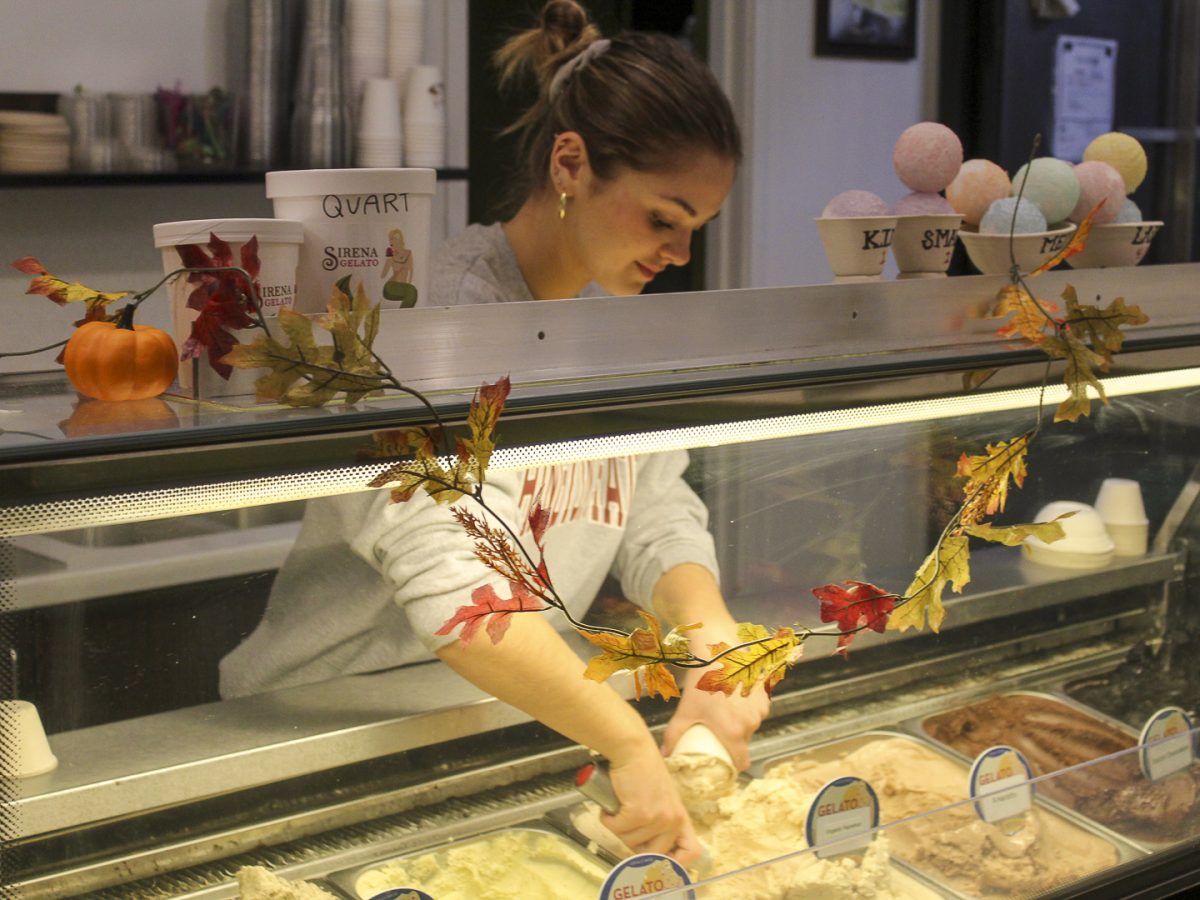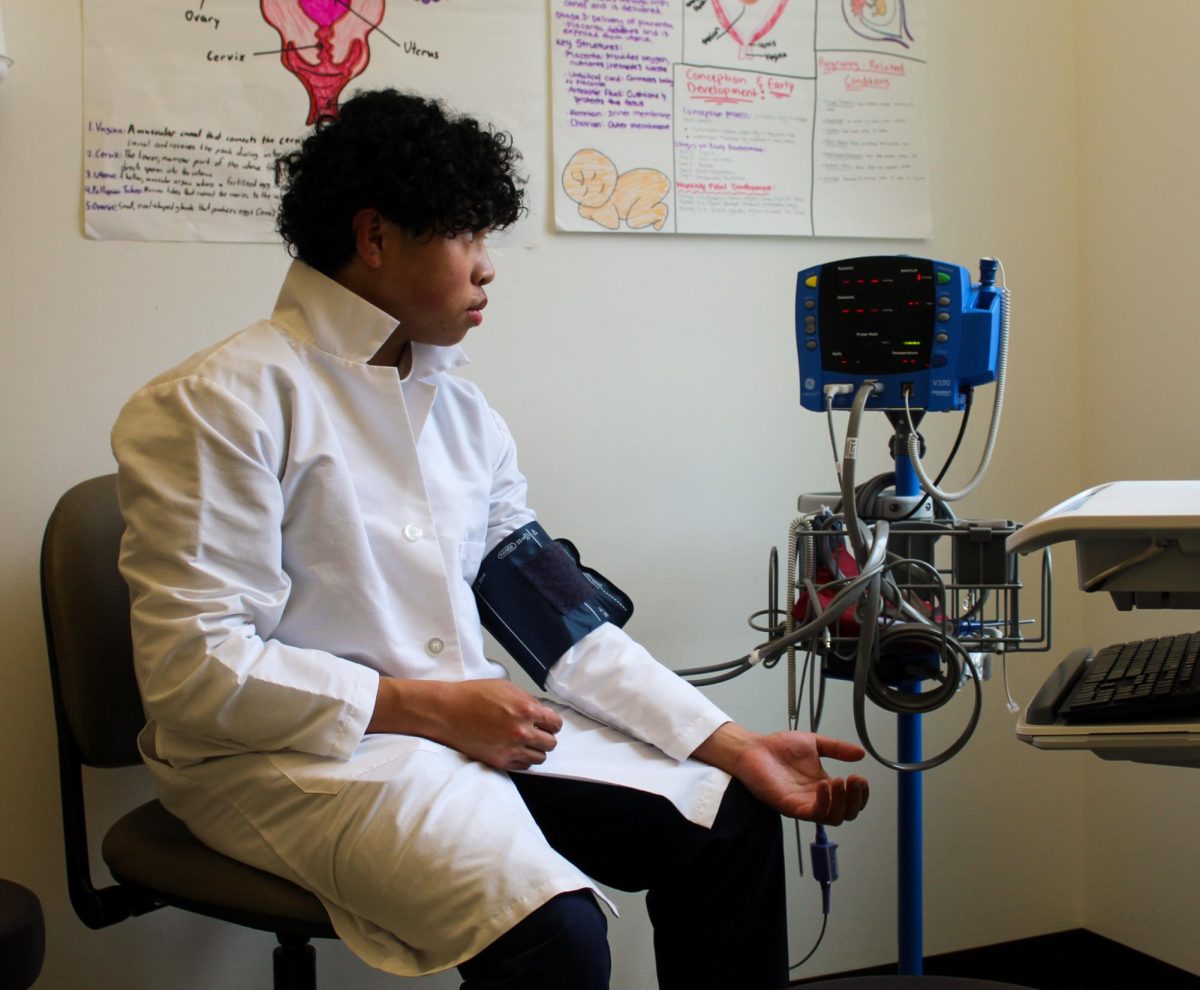Nearly 30% of high school students in the U.S. work during the school year, according to Walden University. In Washington state, the minimum age to work is 14 years old. Students are most commonly employed in industries like fast food, retail, restaurant service and athletic instruction. Having a job allows them to be more financially independent, opening their social lives to more freedoms, such as eating at restaurants with friends, going to the movies or attending school-sponsored events like homecoming.
For senior Monica De Paula (she/her), working as a hostess at a neighborhood restaurant allows her to enjoy time with her friends without worrying about money.
“I wanted money,” De Paula said. “My parents aren’t the type to just give me their credit card. I know some of my friends have their parents’ credit cards — like, no, my parents would kill me. It also just kind of gives you a sense of independence.”
According to College Board, having a job at a young age can benefit character development, such as improved responsibility and maturity.
“I feel like once you start working, you understand the value of money so much. When you buy something, you’re like, ‘Okay, that’s an hour of my time,’” De Paula said. “Also, after working at a restaurant, you respect going to restaurants so much more, and you respect tipping them so much more.”
Senior Max Gelsen (he/him) has been employed as a host at a local cafe for almost two years. He said that in addition to learning about finance and savings, he’s also seen an improvement in his social skills due to his job.
“At work I notice my speaking patterns more because I’m speaking to random people. Like, how do I interact with people I don’t know? And I feel like I’ve actually gained much more speaking skills and social competence because of my job,” Gelsen said.
However, there are challenges to being a working student. De Paula said that working in a high pressure environment can noticeably impact her stress levels. She worked her previous job during IB testing season, and as she was offered little understanding and scheduling flexibility, she often felt overwhelmed.
“I was like, I can’t work that much, and they would schedule me,” De Paula said. “Legally, if you’re a student, you can only work around 20 hours a week. But they would schedule me around 30 hours a week, during school and everything. So it was terrible, and I’d have to go directly from school to work.”
Senior Audrey Brown (she/her) said it was difficult to balance work and school, particularly as a full IB student. Brown has been a lifeguard at her local pool for nearly two years and said she’s learned to adapt to her busy work and academic schedule by figuring out how to best manage her time.
“I’m committed to work two nights a week. So on those nights when I have a lot of homework, I have to bring it with me and try to do it there, or I end up staying up really late after I get home from work doing it,” Brown said.
Similar to Brown, Gelsen adapted to the challenge of being a working student athlete by only working when he doesn’t have cross country practice. He added that if it weren’t for the break in his practice schedule, he wouldn’t be able to work at all.
“Unfortunately, I only work one day a week because, being an athlete, I was going to work Saturdays and Sundays, but now I can only work Sundays, which means less money, but that’s all I can do, because I have practice every weekday and meets on Saturdays,” Gelsen said.
Interviewees said that during the school year, students’ schedules often become exceedingly crammed with school, work and various extracurriculars, leaving little room for social activities.
“[My old job] also took out a lot of my social life. And I love going to parties and hanging out with my friends, and then having to sacrifice that was annoying,” De Paula said.
Teachers who understand the demand of out-of-school activities can be key to keeping student’s stress levels manageable. All interviewees reported that their teachers were considerate of their outside commitments and willing to offer flexibility if they were communicated with properly.
“A lot of teachers that I’ve told ‘Oh, I’m sorry, I had a cross country meet, then I had to work the next day. I’m exhausted, I forgot to do this homework assignment’ — they usually always give me an extension and they’re very understanding, especially if I own up to my word and do the work,” Gelsen said.
All of the students interviewed recommended that other students get a job due to the numerous benefits: a steady income, improved social skills and meaningful experience.
“I feel even though it has its cons, a hundred percent get a job. That sounds mean, but even though it adds stress, it does prepare you for life,” Gelsen said. “It’s just really good to know how jobs work, how money works, how income works, how people work and what you want to do in life.”












